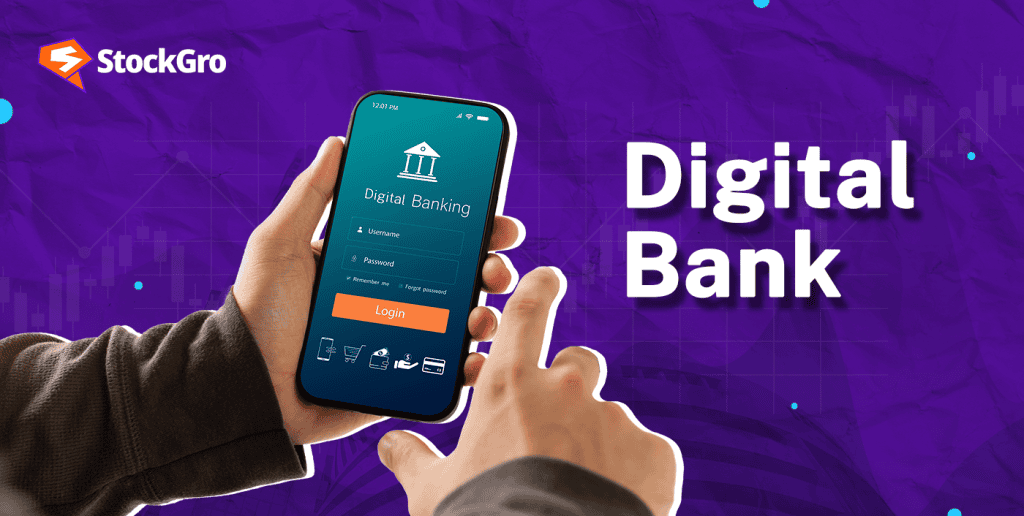
The rapid transformation of Indian digital banking can be witnessed through technological progress and change in consumer behaviour. With projections placing the fintech market at $1.5 trillion by 2025, traditional banks have given way to the development of neo-banks, otherwise known as digital-only banks.
These banks are now trying to adapt innovative and bespoke services suited to the tastes of modern-day customers. By June-2024, India was home to 29 fintech unicorns, leading in payments, lending, and support technologies.. The five qualities that make an Indian digital bank successful include the following:
1. User-friendly digital experience
The most fundamental characteristic of successful digital banks is a seamless and user-friendly digital platform, be it mobile applications or web interfaces. As a result, they streamlined navigation between operations for their customers, such that they could have direct transactions-from account opening to cash transfers-without hassle.
For example, digibank by DBS is one of the high-rated mobile applications that can be used instantly to open an account, manage investments, and transfer. Features like minimal clicks for instant notifications and easy access to financial tools help the clients bank easily. The above considerations will also enhance satisfaction and drive loyalty, thereby improving long-term engagement.
2. Innovative financial products
An innovation and diversified product offering characterises digital banks. Digital banks are constantly changing to fit the needs of tech-savvy consumers through zero-balance accounts, investment platforms, and AI-powered financial tools.
For instance, Fi Money offers young professionals commission-free mutual funds and zero-balance accounts. Similarly, many digital banks have tools for goal-based savings and personalised financial advice that enable users to attain financial wellness.
This innovative culture makes them stay on the frontline of a rapidly evolving financial world, winning the attention of customers by special features that are far from regular banking.
You may also like: Everything you need to know about payment banks in India
3. Solid security measures
Security will be a very important aspect in the new digital age that will be used to increase customer trust, especially given the increase in cyber threats and data privacy concerns.
Successful digital banks implement two-factor authentication (2FA), encryption protocols, and real-time fraud detection systems. These efforts are created to protect customers’ personal information and financial transactions from potential threats.
One of these is Niyo, which centres on strong security but offers digital financial services. Its biometric login options and the instant fraud alerts make sure that customers feel secure when using the platform.
Security is not something that digital banks can do without; they require this as a fundamental element to instil trust in customers and retain them in an increasingly competitive marketplace.
4. Financial inclusion initiatives
More importantly, successful digital banks are ambitious in terms of financial inclusion. With approximately 190 million citizens still unbanked, digital banks bring much-needed affordable banking solutions with low documentation requirements. They simplify account opening procedures and ensure wider reach and accessibility to the services, and they make them available to many levels of communities.
For example, Jupiter offers onboarding that is completely digital; there is no physical documentation required. Budgeting and auto savings are also integrated tools that ease the management of finances. Digital banks are not only expanding but also augmenting India’s financial ecosystem by accessing a newly segmented customer base through inclusivity.
Also read: Explore the complex world of investment banks, one function at a time.
5. Data-driven insights
Successful operations for digital banking are all based on advanced data analytics. Banks using customer data can give their customers very individualised services and targeted recommendations for making the banking experience even better. Furthermore, with such complex algorithms, digital banks can analyse savings habits, spending, investment preferences, and then provide customised financial product offerings accordingly.
For instance, Finin uses data-driven insights to help customers manage their finances better. Its app gives users real-time updates about their expenses and savings along with recommendations on how to improve financial habits. The use of data not only enhances customer satisfaction but also optimises operational efficiency, cutting costs and streamlining processes for the bank.
You may also like: The best banks in India: Leading the way in finance
Conclusion
Neo banks in India are soon revolutionising digital banking due to reinvention of the financial service with innovation and technology. There are five important factors in defining the success of a digital bank: friendly, innovative product offerings, security efforts toward financial inclusion, and data-driven insights that allow a digital bank to meet modern customer needs with trust and competitiveness in the dynamic market.
As digital banking platforms become increasingly adopted by consumers, innovation, securing, and personalisation of products will decide the future for banks in India. So, for that reason, digital banks present both the survival and succour amidst the convenient, innovative, and inclusive competitive financial landscape.
FAQs
- What are digital banks?
Neo banks, also known as digital banks, are financial institutions that fully operate the online banking business with no brick-and-mortar locations. They offer savings accounts, loaning services, and payment solutions through mobile applications and websites using technology. Digital banks typically charge lower fees, offer newer financial products, and ensure higher security compared to traditional banks. Their goal is to reach the most tech-savvy consumers by offering streamlined banking processes and fully customised financial management tools.
- How do digital banks ensure security?
They work through various practices like:
- Encryption: Every bit of sensitive information will be encrypted so that it does not even reach unauthorised personnel while transferring and storing.
- Two-Factor Authentication: Users are required to re-verify their identity besides entering a password, where other modes may be texts or an authentication application in use.
- Real-time fraud detection: Advanced algorithms follow each transaction to check unusual patterns. Once it can predict probable fraud, appropriate alerts or blocks are raised within the system.
- What benefits do digital banks offer?
The advantages of digital banks are:
- They are very convenient because the services can be accessed anytime, anywhere, through mobile applications and websites, eliminating the need for walk-in visits to the bank’s physical branch.
- Digital banks incur fewer costs and thus can charge fewer fees for accounts and transactions than their traditional counterparts.
- Setting up an account is quick and easy.
- Digital banks offer innovative products like zero-balance accounts and savings tools tailored to the needs of modern customers.
- Are digital banks regulated?
Yes, digital banks are regulated, though specifics may vary from country to country. For example, the RBI governs digital banks and prescribes various regulations. These include procuring the requisite licences, AML and KYC norms, and guidelines.
Regulatory oversight would ensure that digital banks operate within financial stability and over the interests of consumers, remaining strictly within the legal framework set for traditional banks. Furthermore, regulatory issues can include matters such as interest rates, fees, and customer complaints handling.
- How can I choose the best digital bank for my needs?
When selecting the best online bank for you, several factors include evaluating your banking needs, comparing fees and charges, and comparing hidden charges.
Determine what services you want, such as saving accounts, loans, or investment. Identify special features, if any, such as budgeting tools or cashback offers.
Try to find the bank which has secured measures like encryption and has a good repute in terms of protection and security. Make sure they have at least two-factor authentication methods.

